Researchers and clinicians from Melanoma Institute Australia have played a leading role at the recent ESMO medical oncology conference in Paris.
ESMO is the world’s most prestigious professional organisation for medical oncology, with the overarching goal of improving outcomes for cancer patients globally.
Led by Co-Medical Director Professor Georgina Long AO, who was recently named the world’s top melanoma expert, the team from MIA presented the latest in melanoma research via a series of oral, poster and education sessions.
Professor Long said the breadth of research and clinical findings presented by Melanoma Institute Australia researchers reflected the massive body of work underway at MIA.
‘The team at Melanoma Institute Australia is an engine room of melanoma research globally, and it is rewarding to see our Faculty members, clinical leaders, and early-stage researchers including PhD students delivering their findings on the world stage at ESMO,’ Professor Long said.
Amongst the presentations at ESMO was Professor Long’s study on the link between circulating tumour DNA (ctDNA) and disease recurrence in patients with resectable disease.
The retrospective study examined pre-treatment plasma from 1127 patients with Stage III resected melanoma, who were then treated with either combination nivolumab and ipilimumab, or nivolumab alone as part of the CheckMate 915 clinical trial. Each patient’s pre-treatment plasma was retrospectively evaluated for ctDNA status.
The study found that the presence of circulating tumour DNA was associated with an increased risk, and greater rate, of disease recurrence regardless of post-surgery (or adjuvant) immunotherapy. Some disease recurrence was seen as early as week 13 of adjuvant therapy.
‘This retrospective study demonstrated that circulating tumour DNA is a useful biomarker for predicting outcomes for Stage III melanoma patients,’ Professor Long said.
‘This adds to our knowledge bank regarding which patients are less likely to respond to adjuvant therapy, enabling us to further personalise therapy and consider different treatment pathways for these patients from the outset.’
Also presenting at ESMO was MIA Faculty member, Associate Professor Matt Carlino, who chaired an Educational Session on acral melanoma, and Dr Ines Pires Da Silva who delivered a prestigious Congress Highlights session titled Investigational Immunotherapy.
In her first international presentation, MIA PhD student Rebecca Simpson delivered a Mini Oral on the correlation between immune cell subsets and pathological response to immunotherapy.
Findings of the retrospective study of Stage III patients on the neoadjuvant OpACIN-neo & PRADO trials could inform the development of therapeutic strategies and interventions that increase treatment efficacy and reduce drug resistance and immune-related adverse events.
Fellow MIA PhD student Jorja Braden also shared her research via a poster presentation.
‘It is particularly rewarding to see MIA’s early-stage researchers, like Rebecca Simpson and Jorja Braden, being recognised and sharing their knowledge and expertise alongside the world’s best,’ Professor Long said.
‘We are pushing the research mantle across all stages and subtypes of the disease, as we strive towards reaching our goal of zero deaths from melanoma this decade.’
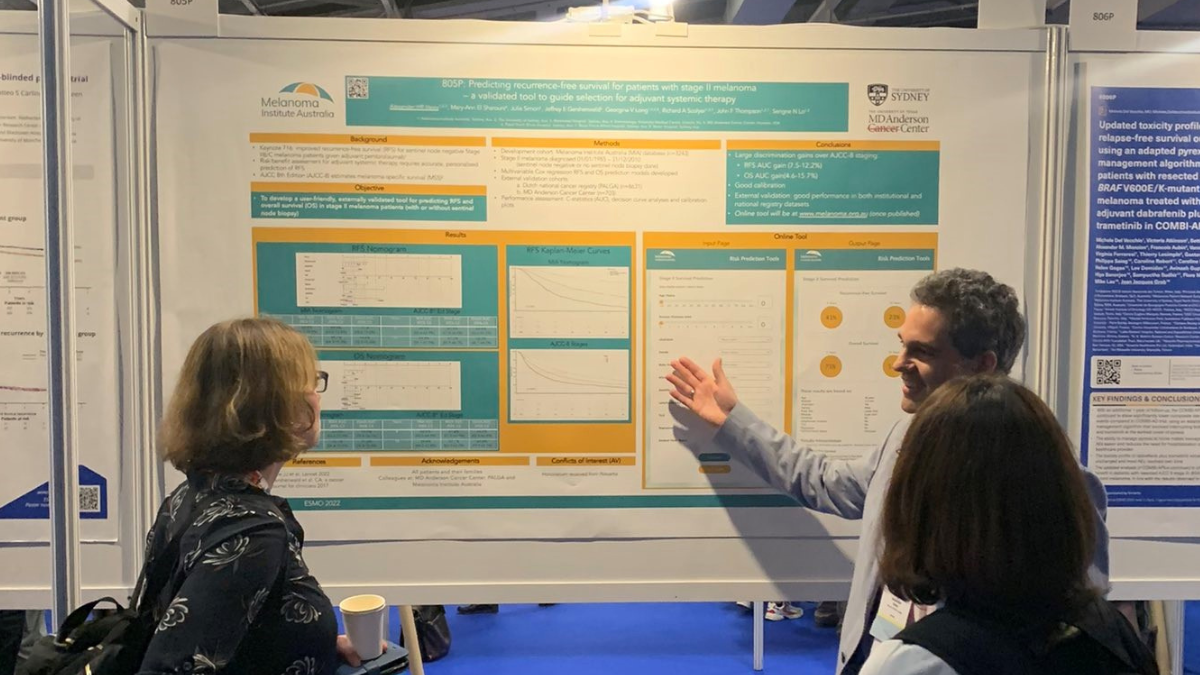

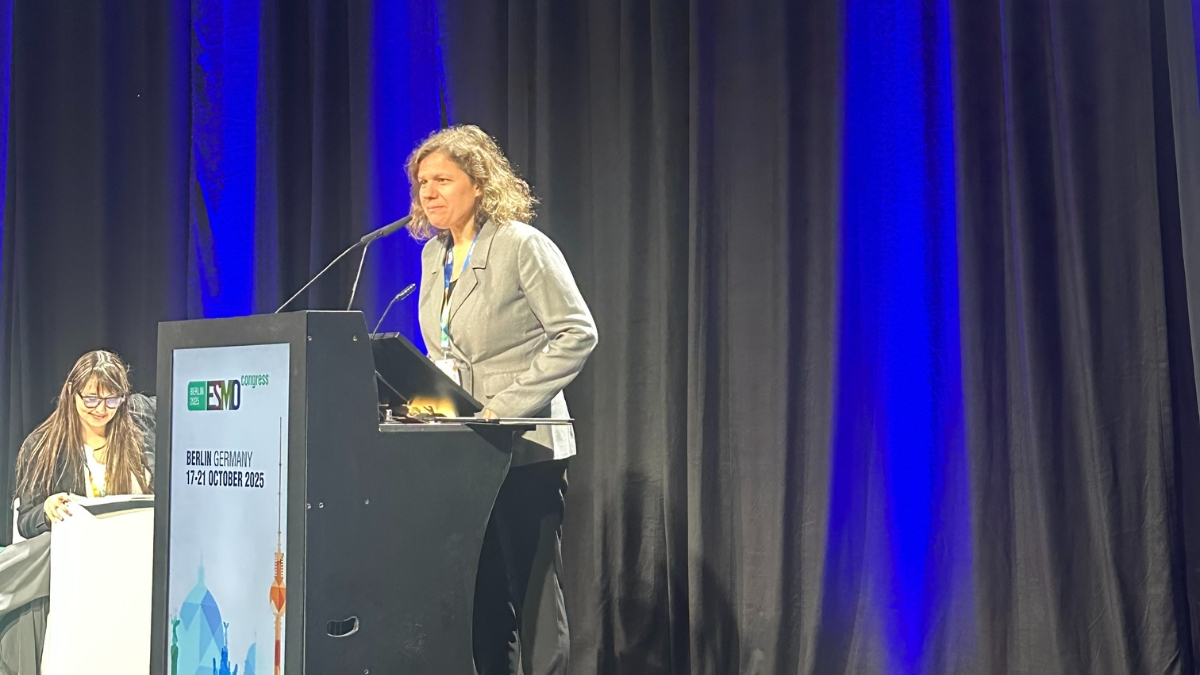
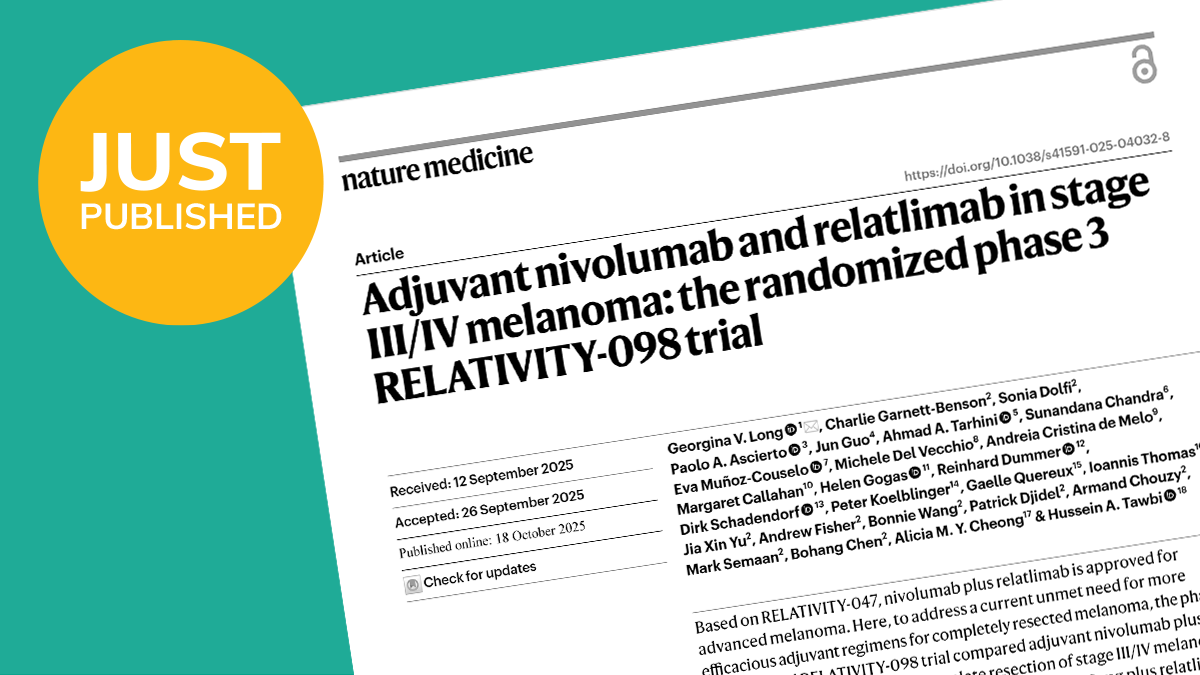
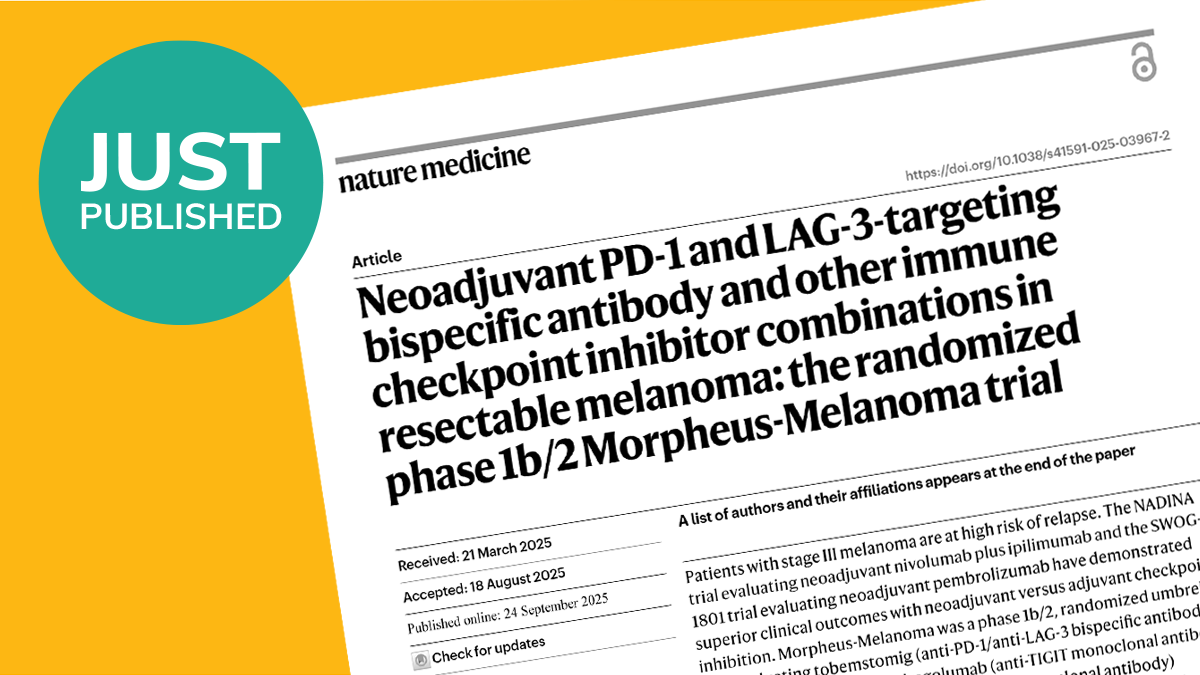
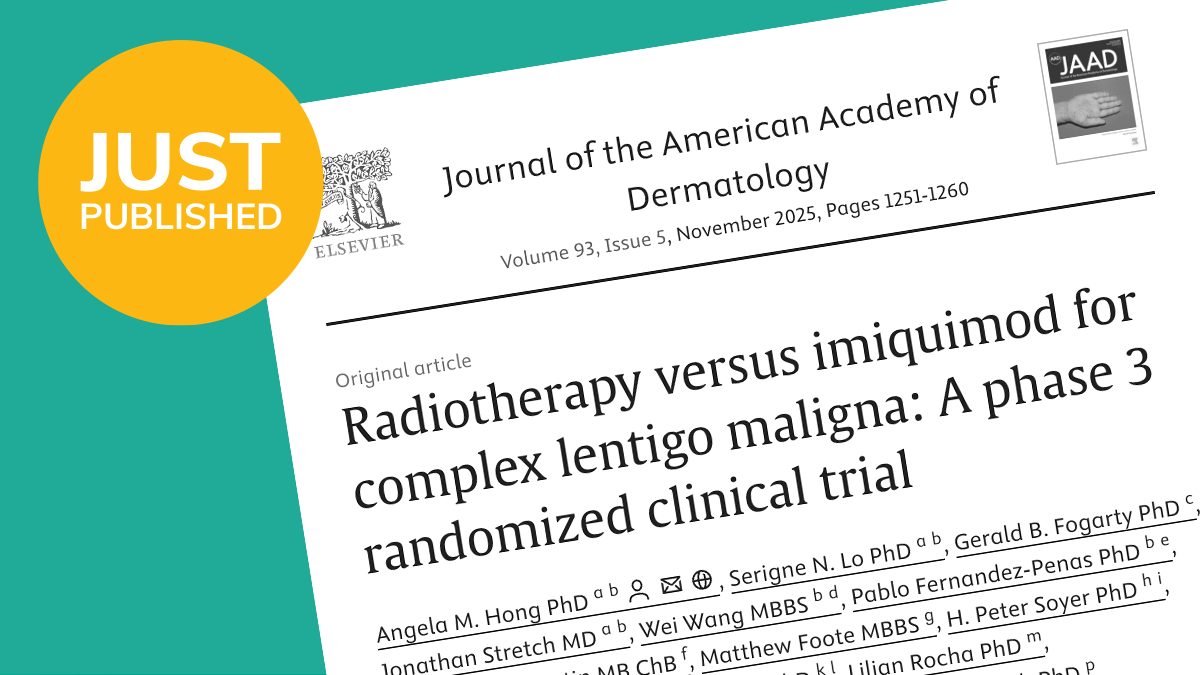
Professor Long and her Oncology team saved my life. My whole family and myself thank you as l now get to see my grandchildren grow up. Congratulations to Professor Long who is so humble and Professor Scolyer as Australians of the year which is so well deserved.